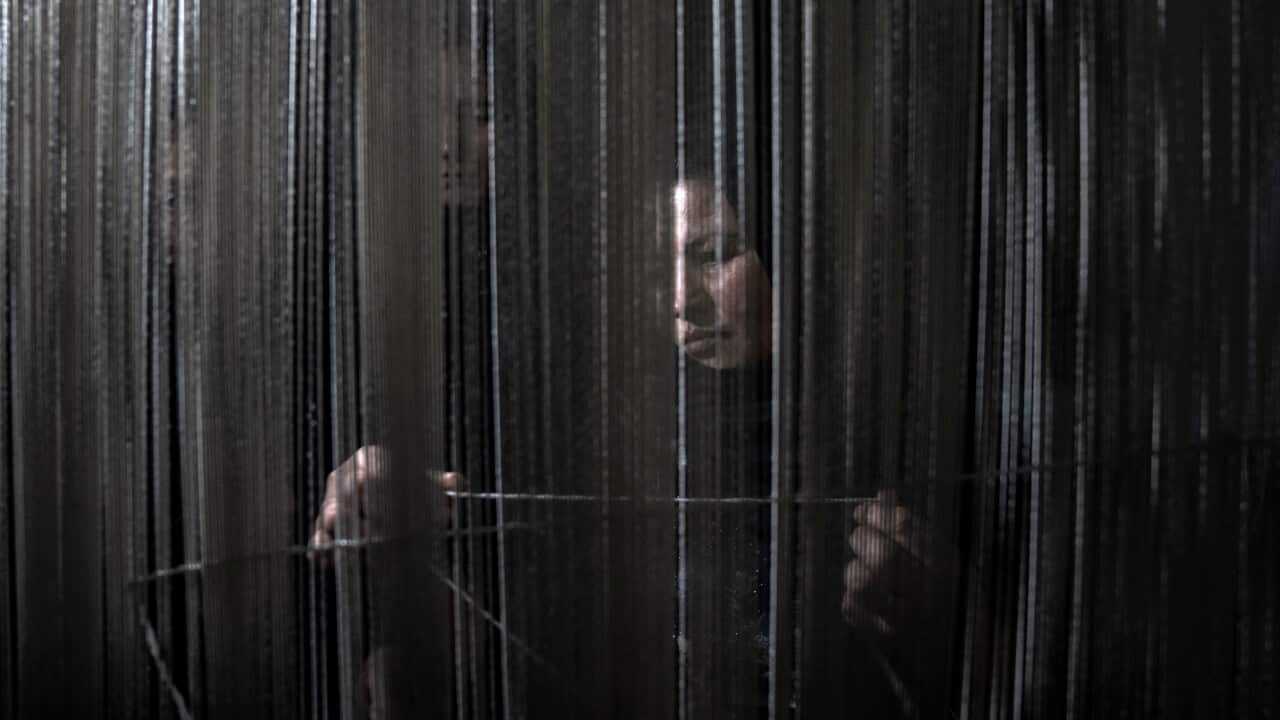Maryam Zahid gets about three messages a day from women thousands of kilometres away looking for her help.
It's usually the same requests: the older women ask for money to feed their children, the younger ones plead to be rescued from their fate in Taliban-controlled Afghanistan.
"A lot of times I have cried, but I can't do anything," Zahid, who is based in Sydney, told SBS News.
The women are complete strangers to Zahid, who runs Afghan Women on the Move, a platform that provides skills training, financial literacy and employment opportunities to newly arrived Afghan women in Australia.
But they share a commonality. Zahid was once in their shoes, a refugee from Afghanistan who made Australia home 26 years ago.
"I understand where they're coming from," Zahid said, as she fights back tears. She said she tries to do as much as she can but is overwhelmed by the level of need.
How has life changed for Afghan women since the Taliban regained power?
Life for Afghan women since the Taliban takeover has become increasingly untenable, according to the United Nations gender equality agency.
Friday marks four years since the militant group took control of the war-torn nation, following the withdrawal of the United States and NATO forces.
Since then, the Taliban, which in the days after its takeover promised to respect women's freedoms, has instead issued scores of directives stripping women and girls of basic human rights.
From banning girls over the age of 12 from secondary school, women from university, work, parks, gyms, and sports clubs, they've even outlawed women from speaking or singing in public.
The group's most recent directive orders media in three provinces to cease airing images of any living being.
Amnesty International has branded the situation for women "gender apartheid".
UN Women on Monday issued a global warning, saying without urgent action, this "untenable reality" will be normalised, leaving women and girls fully excluded from a life outdoors.
"The Taliban is closer than ever to achieving its vision of a society that completely erases women from public life," it said on Monday.
What does the Taliban say about its treatment of women?
Last month, the International Criminal Court issued arrest warrants for Taliban leader Haibatullah Akhundzada and the chief justice, Abdul Hakim Haqqani, on charges of crimes against humanity of gender persecution.
In an interview with SBS Pashto, a Taliban leader maintained that the ban on women and girls' education is temporary.
"It was initially stated that this is a temporary decision and that the needs would be assessed," Taliban spokesperson Zabihullah Mujahid told SBS Pashto.
"We want to find a way that respects our Sharia principles and also achieves consensus in society."
Mujahid said women have now "found a place for themselves" under its strict interpretation of Islamic law — criticised by other Muslim-majority nations, including Saudi Arabia, which has condemned its ban on women's education.
"Nowadays, they have access to it, they can easily obtain their rights, make their own decisions and determine their own destiny in life," Mujahid said.
What is Australia doing?
Human Rights Watch said the Taliban's "abhorrent acts" should urge governments around the world to intervene.
Fereshta Abbasi, an Afghanistan researcher at Human Rights Watch, said: "The fourth anniversary of the Taliban takeover is a grim reminder of the gravity of the Taliban's abuses, particularly against women and girls."
Last year, Australia joined Germany, Canada and the Netherlands to announce legal action before the International Court of Justice against Afghanistan for violations of the Convention on the Elimination of All Forms of Discrimination Against Women by the Taliban.
The other Afghans at risk
In addition, Australia is also being urged to assist Afghans who assisted Australia's mission in Afghanistan, at risk of persecution under the Taliban.
Former Department of Foreign Affairs and Trade (DFAT) contractor Patrick Ryan, who assisted in the evacuation of contracted employees of Australia's embassy in Kabul in 2021, said he's still waiting for visa applications to be processed for over a dozen people.
He said visa processing has stalled since new rules tightening up Australia's Locally Engaged Employee (LEE) program for Afghan nationals came into effect.
"We still have 13 people who remain either stranded in Afghanistan or in third countries who are awaiting processing by [Department of] Home Affairs for humanitarian visas," he told SBS News.
Ryan said a Senate inquiry and a review into an immigration instrument — which identifies people for eligibility for certain visas due to the risks they face because of their link to Australia's mission in Afghanistan — has taken three years.
"During that time, there's been no processing of anyone under any of the contracted employees, under the Afghan LEE special humanitarian visa program.
"And now we're seeing amendments made by the Albanese government excluding some of the people who may have previously been eligible for that program."
Amnesty International has called on the government to "urgently expedite" the processing of visa applications for Afghan nationals awaiting resettlement.
Zaki Haidari, refugee rights strategic campaigner at Amnesty International Australia, said: "Thousands of Afghans have attempted to seek safety in Australia, yet the Australian government has repeatedly failed them."
"After four years of Taliban rule, the need to break this vicious cycle of human rights violations and injustice for the people of Afghanistan is more urgent than ever.
"The Australian government and international community must act swiftly and decisively to end these human rights abuses and protect the Afghan people."
SBS News has contacted DFAT for comment.
— With additional reporting by Haylena Krishnamoorthy
For the latest from SBS News, download our app and subscribe to our newsletter.

